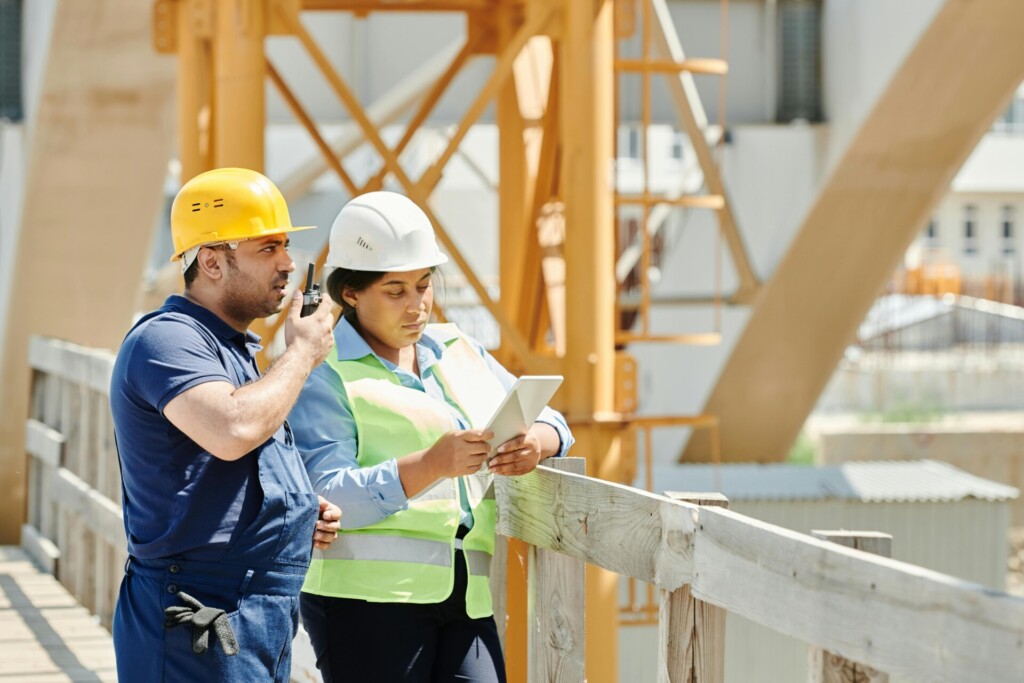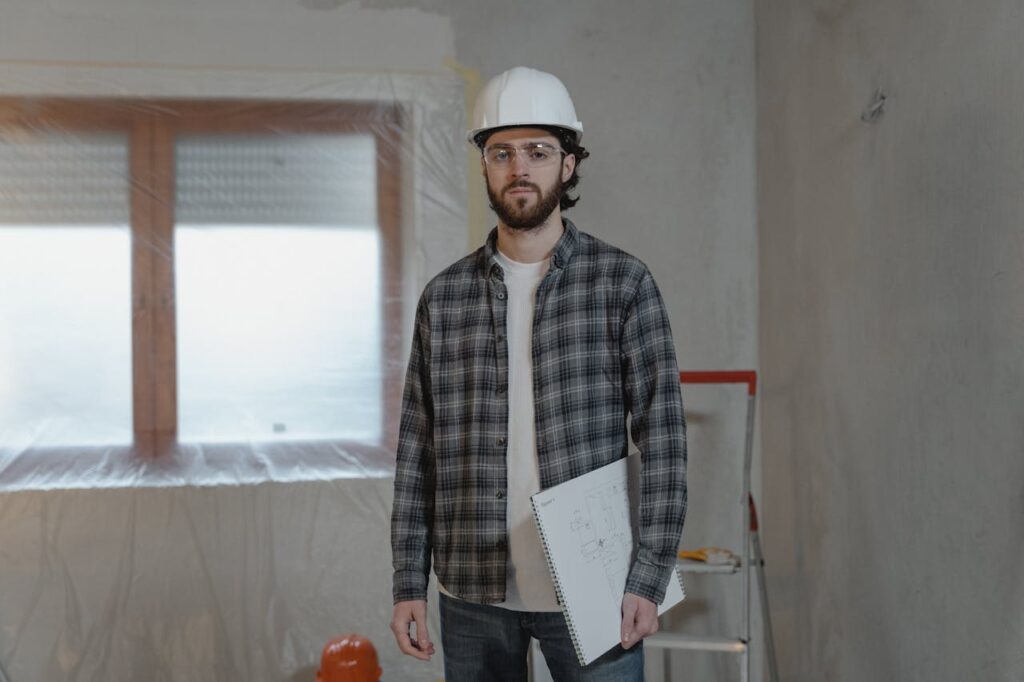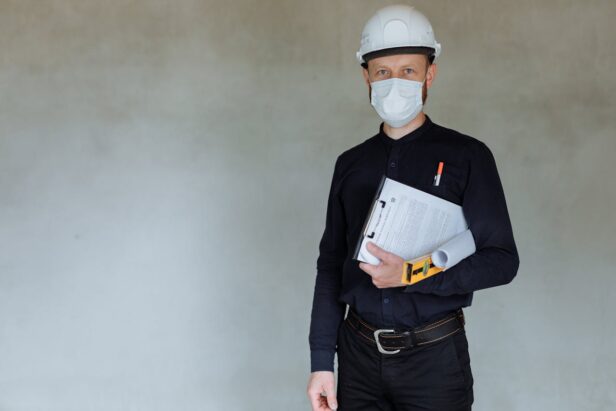Commercial construction specialists coordinate business space development from initial planning through project completion. These professionals deliver comprehensive construction services across diverse sectors and project types.
We manage new construction, expansions, renovations, and tenant improvements that span offices, retail spaces, hospitality venues, warehouses, healthcare facilities, educational buildings, and government properties. The scope extends to mixed-use developments that integrate residential, commercial, and sometimes industrial components within single projects.
What Services Should You Expect From Commercial Construction Specialists?

We deliver comprehensive services that connect initial planning with final occupancy. Our approach handles every phase systematically to reduce surprises and maintain control throughout your project.
Preconstruction Services
Preconstruction work shapes your project before site mobilization begins. We perform detailed cost estimating to establish realistic budgets based on current material and labor costs. Our scheduling develops sequence plans that account for lead times, weather impacts, and coordination requirements.
Quality control planning identifies standards and inspection protocols early. This foundation prevents rework and keeps execution aligned with specifications. We review designs for constructability issues and recommend adjustments that improve both buildability and long-term performance.
Project Delivery Methods
We offer three primary delivery approaches to match your project structure. Design-build integrates design and construction under one contract, streamlining communication and accelerating timelines. Construction management provides owner representation with professional oversight of design and construction phases.
General contracting follows traditional project delivery where we execute construction based on completed design documents. Each method brings specific advantages depending on your timeline, budget priorities, and risk tolerance. We help determine which approach aligns best with your goals.
Core Construction Scopes
Our work spans new construction, building expansions, renovations, and tenant improvements. New builds involve complete site development from foundations through final systems commissioning. Expansions integrate additions with existing structures while maintaining operational continuity.
Renovations update existing spaces to meet current codes, improve efficiency, or accommodate new functions. Tenant improvements customize leased spaces to tenant requirements, often within tight timelines to minimize business interruption. Each scope demands specific expertise in coordination and execution.
Mixed-Use Capabilities
Mixed-use projects combine residential, commercial, and sometimes industrial functions within single developments. We coordinate multiple building systems, occupancy types, and code requirements across integrated structures. This work requires understanding different construction standards and managing complex phasing.
We handle parking structures, retail components, office spaces, and residential units as unified developments. Our experience includes coordination with multiple design teams and managing varied completion schedules across project phases.
Execution Practices
We self-perform selected trades where it improves quality control and schedule reliability. Our supplier relationships provide access to materials at competitive pricing with reliable delivery schedules. These partnerships help us maintain timeline commitments and cost predictability.
Our proven processes include regular progress reviews, proactive issue identification, and systematic quality checkpoints. We use technology platforms for real-time communication and document management, ensuring all stakeholders stay informed throughout construction phases.
Specialized Sector Expertise
Commercial interior work focuses on office build-outs, retail spaces, and corporate headquarters that require precise coordination with existing building systems. Life sciences construction involves specialized HVAC, electrical, and technology infrastructure for laboratory and research facilities.
We coordinate complex MEP systems, cleanroom requirements, and specialized equipment installation. Our project teams include professionals experienced in healthcare regulations, laboratory standards, and technology infrastructure requirements specific to these demanding environments.
How Do Specialists Control Risk, Cost, And Schedule?
Risk reduction drives every decision we make in commercial construction. By engaging during design rather than waiting for final plans, we can identify potential challenges before they become costly delays. This early contractor involvement allows us to align project vision with practical execution methods while site preparation remains months away.
Progressive preconstruction forms the foundation of our risk management strategy. We conduct detailed feasibility assessments, evaluate site conditions, and review constructability during design development. Technology-enabled coordination tools help us model construction sequences and catch conflicts between building systems before installation begins.
Preconstruction Planning And Value Engineering
We establish cost control protocols during preconstruction planning to prevent budget overruns. Value engineering reviews examine material selections, construction methods, and system designs to optimize project value without compromising quality. Our team analyzes alternatives for major building components and presents options that maintain performance while reducing costs.
Dedicated project managers oversee cost tracking throughout each phase. We maintain detailed estimates that account for labor, materials, equipment, and site conditions. Regular budget reviews compare projected costs against actual expenditures, enabling quick adjustments when scope changes occur.
Schedule Management And Construction Sequencing
Schedule monitoring begins with realistic timeline development. We analyze construction sequencing requirements, material delivery lead times, and trade coordination needs to create achievable milestones. Weather contingencies and permit approval timelines factor into our scheduling approach.
Strong supplier relationships support consistent material delivery and pricing stability. We work with established vendors who understand our quality standards and can adapt to project schedule changes. Repeatable construction systems reduce variability and help maintain timeline predictability across projects.
Change Management And Supply Chain Coordination
We implement structured change management processes to handle scope modifications without derailing schedules. Documentation requirements and approval workflows ensure all stakeholders understand cost and timeline impacts before changes proceed. Clear communication protocols keep project teams informed of adjustments.
Supply chain coordination includes monitoring material availability and pricing trends. We track delivery schedules for long-lead items and maintain relationships with multiple suppliers for critical materials. This approach reduces risk from single-source dependencies and supply disruptions.
Recent commercial construction data shows average costs of approximately $78.28 per square foot over a two-year period, with project timelines extending up to 50 weeks depending on building size and complexity. These benchmarks reflect the importance of thorough preconstruction planning and consistent project management throughout the construction process.
Which Sectors And Building Types Do Specialists Deliver?

Commercial construction specialists serve diverse sectors with distinct requirements and operational needs. We deliver projects across traditional business environments, specialized facilities, and integrated developments that combine multiple functions on one site.
Core sectors include corporate offices with custom buildouts for technology infrastructure and collaborative workspaces. Retail environments require high-traffic design considerations and flexible layouts for changing merchandise displays. We construct hospitality venues from boutique hotels to large conference facilities that balance guest experience with operational efficiency.
Industrial And Specialized Facilities
Industrial facilities encompass manufacturing plants, distribution centers, and research facilities with heavy-duty structural requirements. These projects often involve specialized equipment foundations, high-bay construction, and integration of complex mechanical systems. Warehouse developments focus on efficient material flow and modern logistics technologies.
Life sciences construction represents a growing specialty area requiring cleanroom environments, specialized ventilation systems, and compliance with strict regulatory standards. Biotech labs demand precise environmental controls and contamination prevention measures that we coordinate through dedicated project management.
Institutional And Mixed-Use Projects
Education facilities range from K-12 schools to university research buildings, each requiring acoustic considerations, safety protocols, and technology integration. Healthcare spaces include medical offices, outpatient clinics, and specialized treatment centers with complex infrastructure needs for patient care equipment.
Government and civic projects involve courthouses, municipal buildings, and public service facilities that require security considerations and accessibility compliance. Mixed-use developments combine residential, commercial, and sometimes industrial components within integrated campuses or high-rise towers.
Tenant improvements and corporate interiors represent frequent project scopes where we modify existing spaces to meet specific business requirements. These assignments often involve office buildouts with updated technology systems, hospitality venue renovations, and healthcare space adaptations. Mixed-use assignments can incorporate parking structures and storage facilities that serve multiple building functions while optimizing land use efficiency.
How Do Sustainability And Compliance Fit Into Commercial Projects?
Sustainability has moved from optional consideration to fundamental requirement in commercial construction. We coordinate eco-friendly approaches throughout project phases, from material selection to operational efficiency standards. Many project teams now include LEED Accredited Professionals who guide certification pathways and ensure compliance with green building standards.
LEED certification targets specific performance outcomes across energy, water, materials, and indoor environmental quality categories. Projects earning LEED status typically achieve 30% energy savings compared to baseline buildings, according to U.S. Green Building Council data. We align building systems with ASHRAE 90.1 standards and International Energy Conservation Code requirements to establish energy performance baselines.
Renovation projects present opportunities to upgrade existing buildings to current code standards while enhancing functionality. We integrate high-performance envelopes, natural ventilation systems, and energy-efficient mechanical equipment during major renovations. These updates often improve indoor air quality through enhanced filtration and controlled fresh air intake, supporting occupant health and productivity.
Net-zero energy goals drive some projects toward comprehensive sustainability measures. We coordinate solar panel installations, geothermal systems, and advanced building automation to reduce operational energy consumption. Low-impact design strategies include locally sourced materials, water-efficient fixtures, and construction waste diversion programs that support LEED Materials and Resources credits.
Code compliance intersects with sustainability through mandatory energy efficiency requirements and voluntary green building standards. We navigate state-specific building codes while pursuing certification levels that align with client objectives. The result creates buildings that meet regulatory minimums while achieving long-term operational efficiency and reduced environmental impact.
Conclusion And Next Steps With EB3 Construction

Commercial construction specialists coordinate projects from initial concept through final delivery, managing new builds, expansions, renovations, tenant improvements, and mixed-use developments. We control project outcomes through early planning, comprehensive preconstruction services, and proven execution practices that address risk factors, cost variables, and schedule constraints before they impact delivery.
When proceeding with your commercial project, begin by defining your project scope, schedule baseline, and budget benchmarks clearly. Engage our team during the design phase when we can provide the most value through early contractor involvement and preconstruction planning. Request assignment of a dedicated project manager who will coordinate all phases of work and maintain consistent communication throughout the project. Develop your preconstruction plan to include detailed cost estimates, construction sequencing, and quality control measures that align with your operational requirements. Finally, establish sustainability goals such as LEED certification targets or specific energy performance objectives that support your long-term facility needs.
Contact EB3 Construction to discuss your commercial construction needs and project delivery approach.




